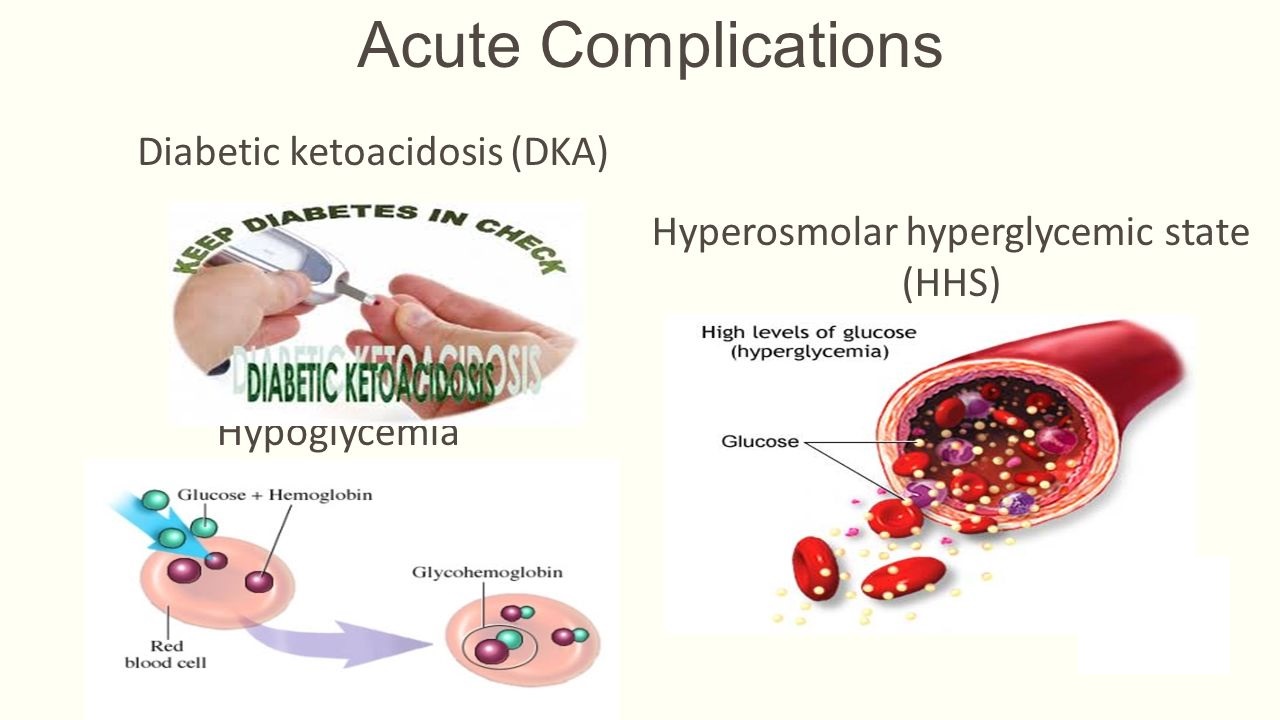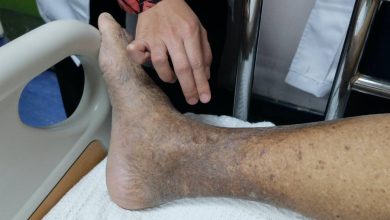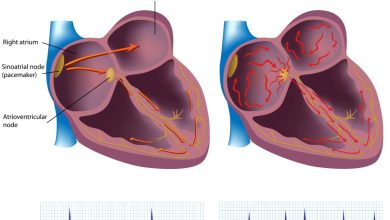Diabetic Hyperosmolar Syndrome Causes, Symptoms, Diagnosis And Treatment

What Is Diabetic Hyperosmolar Syndrome?
Diabetic hyperosmolar syndrome is a complication of type 2 diabetes.
It involves extremely high blood sugar (glucose) levels without the presence of ketones. Ketones are waste products of fat breakdown.
As a result of diabetic hyperosmolar syndrome, the body tries to rid itself of the excess blood sugar by passing it into one’s urine. Left untreated, it can lead to life-threatening dehydration. Therefore, prompt medical care is integral.
It is less common than the other acute complication of diabetes, diabetic ketoacidosis (DKA).
It usually presents in older patients with type 2 DM and carries a higher mortality than DKA, estimated at approximately 10-20%.
It is characterized by hyperglycemia, hyperosmolarity, and dehydration without significant ketoacidosis.
Causes Of Diabetic Hyperosmolar Syndrome:
Diabetic hyperosmolar syndrome may be caused by:
- Illness
- Heart attack
- Stroke
- Infection
- Not following a diabetes treatment plan or having an inadequate treatment plan
- Certain medications
- that decrease the effect of insulin in the body
- that increase fluid loss
The following factors increase the risk of developing diabetic hyperosmolar syndrome;
- A stressful event such as:
- Infection
- pneumonia
- urinary tract infection
- virus
- heart attack
- stroke
- recent surgery
- Congestive heart failure
- Impaired thirst
- Limited access to water (especially in patients with dementia or who are bedbound)
- Older age
- Poor kidney function
- Poor management of diabetes — not following the treatment plan as directed
- Stopping insulin or other medications that lower glucose levels
- Taking certain medications.
- corticosteroids
- prednisone
- diuretics
- hydrochlorothiazide
- chlorthalidone
- anti-seizure medication phenytoin
- Dilantin
Symptoms Of Diabetic Hyperosmolar Syndrome:
The following symptoms may be exhibited by those suffering from diabetic hyperosmolar syndrome:
- Coma
- Confusion
- Convulsions
- Dry mouth, dry tongue
- Fever
- Increased thirst
- Increased urination (at the beginning of the syndrome)
- Lethargy
- Nausea
- Weakness
- Weight loss
- Loss of feeling or function of muscles
- Problems with movement
- Speech impairment
Diagnosis Of Diabetic Hyperosmolar Syndrome:
Diabetic hyperosmolar syndrome is diagnosed via:
- A medical history
- Physical exam that may show:
- Extreme dehydration
- Fever higher than 100.4° Fahrenheit
- Increased heart rate
- Low systolic blood pressure
- Tests
- Blood osmolarity (concentration)
- BUN and creatinine levels
- Blood sodium level
- Ketone test
- Blood glucose
- Chest x-rays
- ECG
- Urinalysis
- Blood cultures
Treatment Of Diabetic Hyperosmolar Syndrome;
Prompt treatment is required for diabetic hyperosmolar syndrome.
Treatment may include:
- Intravenous fluids to counter dehydration
- Intravenous insulin to lower one’s blood sugar levels
- Intravenous potassium, and occasionally sodium phosphate replacement to help the cells to function correctl
By : Natural Health News




